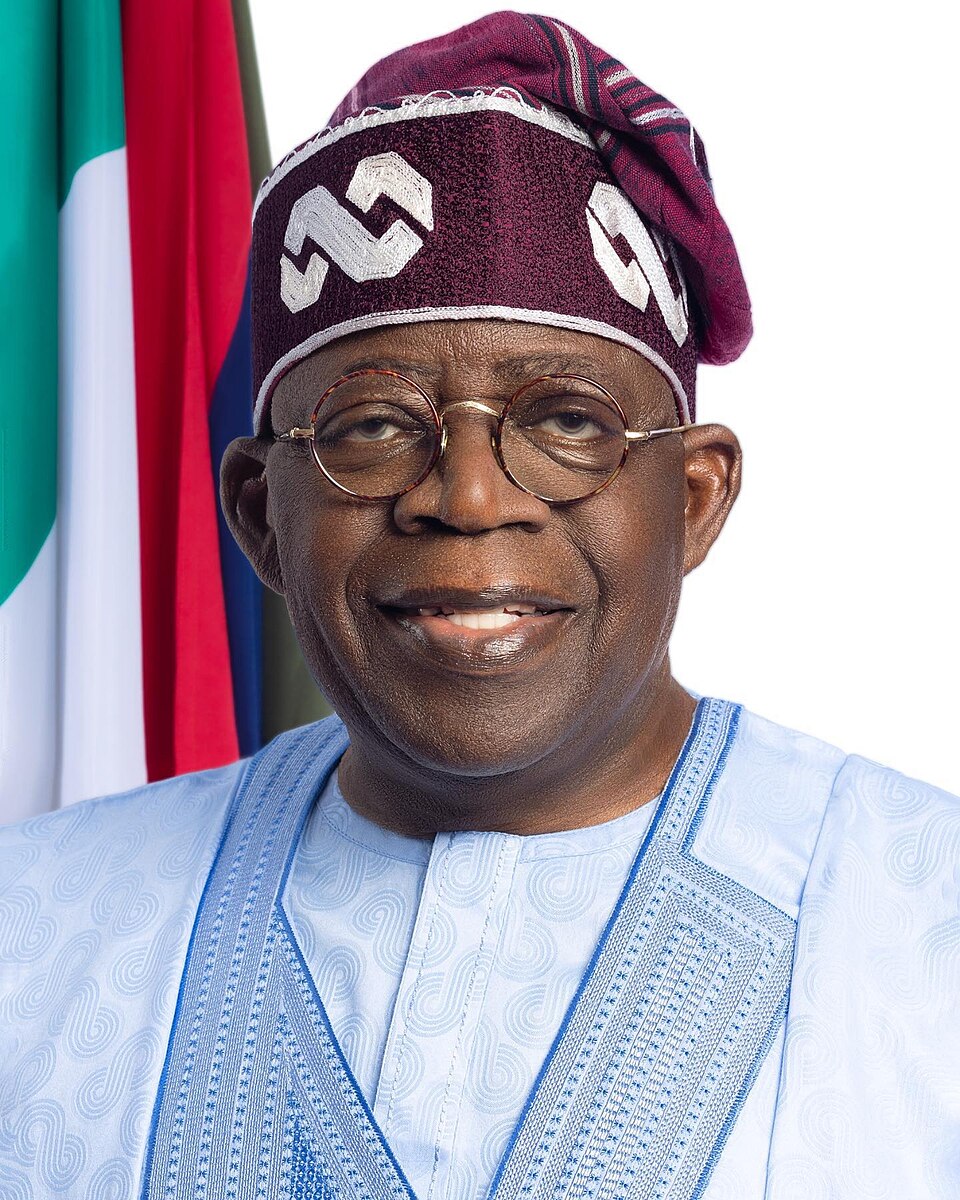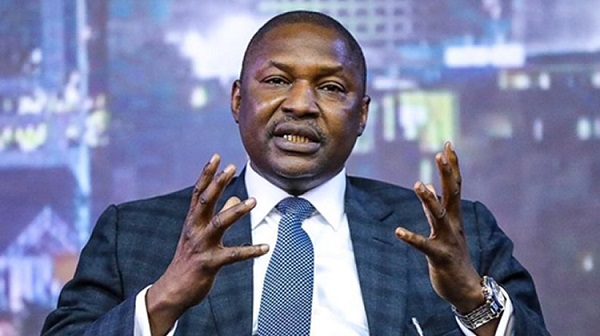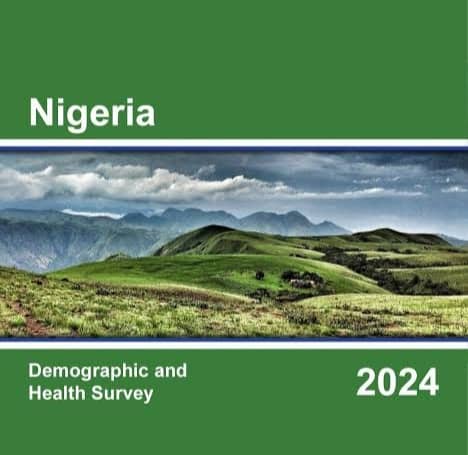News
President Tinubu vows to end hospitals’ power crisis

President Bola Tinubu has reaffirmed his administration’s commitment to overhauling Nigeria’s health sector, with a strong emphasis on tackling the persistent power supply crisis crippling the nation’s hospitals.
Represented by the Secretary to the Government of the Federation, Senator George Akume, at the National Stakeholders’ Dialogue on Power in the Health Sector in Abuja yesterday, the President declared that no Nigerian should lose his /her life because of electricity interruptions in medical facilities.
“Today, we face a pressing issue that affects every Nigerian: the persistent power supply crisis in our tertiary hospitals and public health institutions. In surgical theatres, maternity wards, intensive care units, laboratories, and emergency rooms across the country, power outages too often compromise safety, interrupt care, and cost lives. This crisis demands our immediate attention and concerted action,” he said in a statement issued by the SGF’s media aide, Yomi Odunuga.
Tinubu described the situation as unacceptable and pledged that his government would prioritise sustainable energy solutions for health facilities nationwide.
“These outages cannot continue and under our administration, they should not. Lives are at stake. We must act now,” he stressed.
The President explained that improving energy supply in healthcare is a key part of the Renewed Hope Agenda, which seeks to decentralise energy systems and encourage private sector participation.
“My administration is fully committed to transforming the health sector by targeting innovative solutions to its hydra-headed challenges, including sub-optimal, inefficient, and uneconomical electricity supply that drives up costs, disrupts care, compromises quality and increases patient dissatisfaction.
“This initiative to advance energy solutions in our hospitals is not isolated; it is integral to addressing energy poverty in Nigeria by deploying tailor-made solutions and fostering private sector involvement,” Tinubu added.
He reassured investors of a business-friendly environment in the health, energy, and infrastructure sectors, pledging collaboration with credible partners, particularly in renewable and hybrid energy systems.
Citing national programmes, Tinubu pointed to the Energy Transition Plan and ongoing power sector reforms as building blocks for cleaner, decentralised, and more resilient energy systems. He noted that the plan prioritises off-grid solar and hybrid systems for public institutions, with incentives, regulatory support, and innovative financing to attract investments.
Nigeria’s health sector has long grappled with underfunding, poor infrastructure, and systemic inefficiencies. Among the most dangerous challenges is unreliable power, which has repeatedly endangered patients and strained medical staff.
In August 2024, the Federal Government announced a 50 per cent electricity subsidy for hospitals and schools to ease rising energy costs. But months later, the Medical and Dental Consultants’ Association of Nigeria reported that many hospitals were still paying full tariffs, raising doubts about the policy’s implementation.
In February 2025, Coordinating Minister of Health, Muhammad Pate revealed that the national budget had made provisions for solar projects in hospitals, including the University College Hospital, Ibadan, which had suffered a 100-day blackout that disrupted surgeries, diagnostics, and training.
Further efforts followed in March 2025 when the government convened a national dialogue and inaugurated a multi-agency committee to craft a comprehensive health-sector energy policy. And in August 2025, Tinubu approved ₦100 billion for the National Public Sector Solarisation Initiative, targeting hospitals and other public institutions.
Yet, despite these initiatives, power remains unreliable in many hospitals, especially outside major cities, where staff often resort to flashlights and diesel generators during critical procedures.
News
Washington attack: US orders review of all Green Cards from 19 countries

The United States government has announced a sweeping review of all Green Cards issued to citizens of 19 countries, following Wednesday’s attack on National Guard troops in Washington, D.C.
The Trump administration disclosed the move on Thursday after authorities identified the detained suspect as a 29-year-old Afghan national who had previously worked with American forces in Afghanistan.
According to AfghanEvac, an organisation involved in the resettlement of Afghans after the 2021 Taliban takeover, the suspect was granted asylum in April 2025, not permanent residency.
In a statement on X, the Director of the US Citizenship and Immigration Services (USCIS), Joseph Edlow, said, “I have directed a full-scale, rigorous re-examination of every Green Card for every alien from every country of concern.”
The order had earlier banned nearly all nationals from 12 of those countries, including Afghanistan, from entering the United States.
Here is a full list of countries under the travel ban:
Countries with Full Travel Ban (12)
1. Afghanistan
2. Myanmar
3. Chad
4. Congo-Brazzaville
5. Equatorial Guinea
6. Eritrea
7. Haiti
8. Iran
9. Libya
10. Somalia
11. Sudan
12. Yemen
Countries with Partial Ban (7)
1. Burundi
2. Cuba
3. Laos
4. Sierra Leone
5. Togo
6. Turkmenistan
7. Venezuela
News
EFCC summons ex-AGF Malami

The Economic and Financial Crimes Commission (EFCC) has invited former Attorney-General of the Federation and Minister of Justice, Abubakar Malami, for questioning.
Malami served as Attorney-General and Minister of Justice from 2015 to 2023 under former President Muhammadu Buhari.
Malami announced the development on his Facebook page on Friday, confirming that he had received a formal invitation from the anti-graft agency.
“I would like to inform my family and friends that I have been summoned by the EFCC to provide clarification on certain matters, and as a law-abiding and patriotic citizen, I am determined to honour this invitation without any hesitation,” he wrote.
The former minister reiterated his commitment to the principles of honesty, integrity, and accountability, which he said guided his years in public service.
“I believe in the importance of honesty, integrity, and accountability in governance; these are principles that I have long supported and upheld over the years of my public service,” he added.
Malami also stated that he would keep Nigerians informed of any developments that may arise from the invitation.
News
NDHS: Nigerian regions show huge disparity in spousal earnings

• South South most equal
By Grace Edet
New data from the 2024 Nigeria Demographic and Health Survey (NDHS) has revealed major regional disparities in spousal earnings, showing that most Nigerian wives aged 15–49 earn less than their husbands, despite growing pockets of income equality across the country.
According to figures shared by Statisense on Tuesday, the trend is most pronounced in the North-West, where 941 in 1,000 wives earn less than their husbands, while only 29 in 1,000 earn more. The region also recorded the lowest rate of non-earning husbands, with just 7 in 1,000 women reporting partners with no income.
In contrast, the South South posted the strongest levels of income parity. The region recorded 113 in 1,000 wives earning the same as their husbands, the highest nationwide. It also had the largest share of women earning more than their spouses at 61 in 1,000.
The North East also showed notable shifts. While 30 in 1,000 wives out-earn their husbands, one of the highest shares in the country, the region still reported that 888 in 1,000 women earn less, reflecting wide inequality despite emerging improvements.
The North Central displayed more balanced figures, with 46 in 1,000 women earning more, and 65 in 1,000 earning equally, though 848 in 1,000 wives still fall below their husbands’ income levels.
In the South East, income gaps remain significant but show signs of narrowing. The data shows 57 in 1,000 wives earn more, 82 in 1,000 earn equally, while 775 in 1,000 still earn less than their husbands.
For the South West, 45 in 1,000 wives earn more, and 75 in 1,000 earn the same, but 824 in 1,000 wives still earn below their husbands’ earnings. Only 11 in 1,000 husbands reported having no income.
The NDHS 2024 findings highlight a consistent national pattern: while traditional income structures remain strong, especially in northern regions, the southern zones, particularly the South South, are showing faster shifts toward income equality within households.
Experts say the trend reflects broader economic realities, including rising female participation in formal work, regional differences in literacy levels, and contrasting socio-cultural expectations about household roles.
The full survey continues to shape policy discussions on women’s economic empowerment, labour participation, and regional development priorities.
-

 Art & Life9 years ago
Art & Life9 years agoThese ’90s fashion trends are making a comeback in 2017
-

 Entertainment8 years ago
Entertainment8 years agoThe final 6 ‘Game of Thrones’ episodes might feel like a full season
-

 Art & Life9 years ago
Art & Life9 years agoAccording to Dior Couture, this taboo fashion accessory is back
-

 Business9 years ago
Business9 years agoThe 9 worst mistakes you can ever make at work
-

 Entertainment9 years ago
Entertainment9 years agoThe old and New Edition cast comes together to perform
-

 Sports9 years ago
Sports9 years agoPhillies’ Aaron Altherr makes mind-boggling barehanded play
-

 Entertainment8 years ago
Entertainment8 years agoMod turns ‘Counter-Strike’ into a ‘Tekken’ clone with fighting chickens
-

 Entertainment9 years ago
Entertainment9 years agoDisney’s live-action Aladdin finally finds its stars





